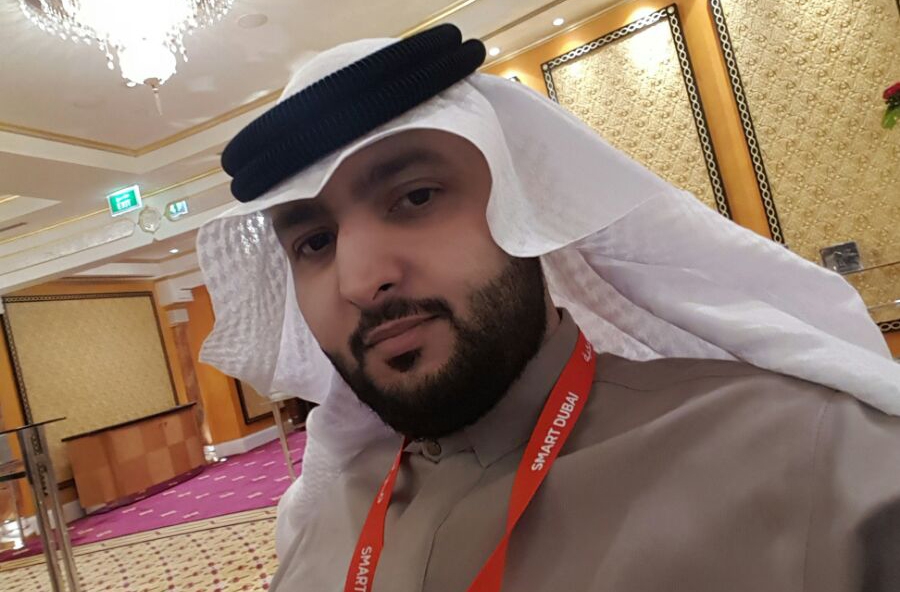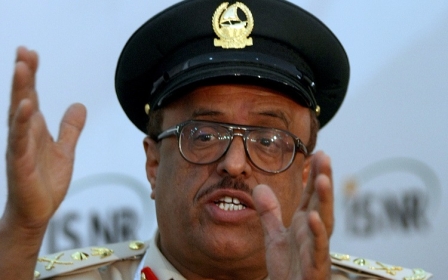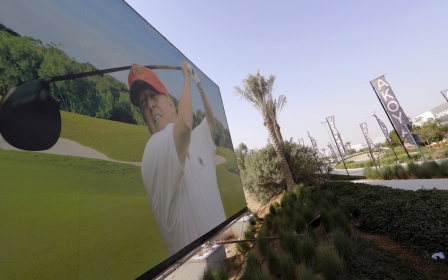Bitcoin of the Arab world: Dubai company creates region’s first digital currency

ArabianChain Technology, a Dubai-based software venture, is creating what may be the Arab world’s first open-source, public blockchain.
Known as the technology backbone of Bitcoin and other digital currencies, a blockchain is a digital ledger that provides decentralised, encrypted systems of record keeping and transaction processing.
By opening up its blockchain coding, ArabianChain is inviting software developers in the Arabian Peninsula, North Africa and beyond to collaborate on building money-and-time-saving applications for industries ranging from financial services to real estate, healthcare and logistics.
“Our goal is to lead the way in entrepreneurial thinking by bringing blockchain technology to the Arab world,” Mohammed Alsehli, 29, ArabianChain’s chief executive officer, said by phone from Dubai, UAE. “The platform is ready for community members to start building solutions on top of it.”
In addition to the blockchain, ArabianChain has created what could be the Middle East's first digital currency. Called DubaiCoin-DBIX, he believes it has the potential to become a foundation of digital commerce in the Arab World.
“DBIX is a secure and economical means to conduct payments and asset transfers,” Alsehli said.
Our goal is to lead the way in entrepreneurial thinking by bringing blockchain technology to the Arab world
- Mohammed Alsehli, ArabianChain Technology
The coin, which also provides so-called fuel for ArabianChain’s blockchain, can be programmed to represent shares in a company, a vote in an election, or the identity of a person or asset, he said.
While blockchain is spreading steadily in Europe, North America and in parts of Asia, the technology’s presence in the Arab world has been uneven. Of the more than $50bn invested globally in financial technology since 2010, the Middle East and North Africa accounted for about one percent, said the Dubai International Financial Centre.
That’s not stopping up-and-coming companies like ArabianChain from getting in position for increased regional demand for blockchain expertise and services.
The decentralised nature of blockchain allows parties to cut expenses by conducting business online without a middleman or trusted intermediary. It also promises to improve data security and further reduce costs by eliminating the need to build and maintain large, centralized databases that have been prone to hacking.
“The blockchain is a disruptive technology,” Alsehli said.
Practical applications include saving foreign workers millions of dollars a year by reducing the cost of remitting funds to their homelands, and helping governments to store and administer land titles and medical records more efficiently.
“Some farsighted banks in the Middle East are already exploring how blockchain might transform their approaches to trading and settling, investment and capital assets management,” Max Di Gregorio, PricewaterhouseCooper’s Middle East partner in digital and technology consulting, said earlier this month in a statement.
“They recognise that the technology could become a differentiating factor in their own capabilities, enabling them to process transactions with more efficiency, security, privacy, reliability and speed,” Di Gregorio said.
In October, Hamdan bin Mohammed bin Rashid Al Maktoum, Dubai’s crown prince, unveiled an ambitious plan to make the emirate a world leader in blockchain by encouraging government departments to exploit the technology.
Some farsighted banks in the Middle East are already exploring how blockchain might transform their approaches to trading and settling
- Max Di Gregorio, PricewaterhouseCooper
“Blockchain is helping to replace old concepts of how to do business, speeding up business processes and improving transparency,” said Omar bin Jabal, a retired executive of Saudi Arabia-based National Security Bank who has mentored Alsehli. “We’re in an era of digital transformation.”
International Business Machines said last month it was joining forces with the government of Dubai to develop a blockchain-based system for managing trade finance and logistics related to the import and re-export process of goods in and out of the city.
“Taking the example of a shipment of fruit, stakeholders involved in the process will receive timely updates as the fruit is exported from India to Dubai by sea, and then manufactured into juice in Dubai, and then exported as juice from Dubai to Spain by air,” the New York-based computer services company said in a statement.
Dubai’s proactive approach to blockchain technology was a factor in determining where Alsehli and his partners established their company.
ArabianChain is an active participant in Dubai's Digital Islamic Economy initiative and is recognised under the Dubai Silicon Oasis Authority, a local business promotion agency, said Alsehli, who studied software engineering at King Fahd University of Petroleum and Minerals in Saudi Arabia, and previously worked in banking and computer services.
“We chose Dubai for our headquarters because it’s a step ahead,” he said. “Dubai is aiming to be the world’s first city by 2020 to put all its government documentation on blockchain. No other city has promised that.”
ArabianChain’s blockchain is modeled on Ethereum, the world’s second-largest public blockchain after Bitcoin. Alsehli decided to build on Ethereum’s architecture to speed development of the company’s suite of blockchain-related features rather than starting from scratch.
Dubai is aiming to be the world’s first city by 2020 to put all its government documentation on blockchain. No other city has promised that
- Mohammed Alsehli, ArabianChain Technology
“By using Ethereum we still have the flexibility to develop customised applications for the region” in areas such as education and Islamic banking, Alsehli said.
In conjunction with the digital currency, Alsehli and his team are actively promoting specialized software called Thuraya to allow developers to write so-called smart contracts that execute themselves on the blockchain. Thuraya is accessible to programmers in Arabic, English and French.
“We have ambitions beyond the Middle East,” Alsehli said.
New MEE newsletter: Jerusalem Dispatch
Sign up to get the latest insights and analysis on Israel-Palestine, alongside Turkey Unpacked and other MEE newsletters
Middle East Eye delivers independent and unrivalled coverage and analysis of the Middle East, North Africa and beyond. To learn more about republishing this content and the associated fees, please fill out this form. More about MEE can be found here.




